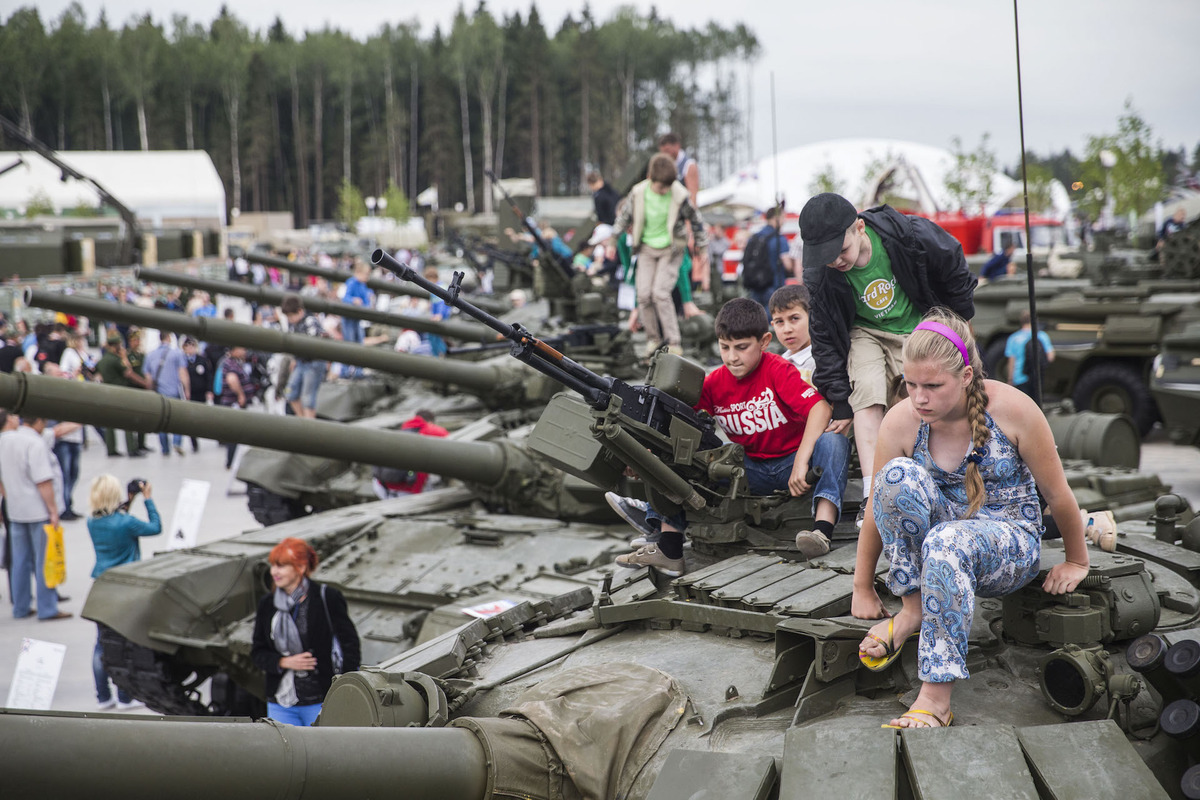
Putin’s Appeal to Russian Identity.
by Charlotte Desprat
[dropcap]I[/dropcap]n 2011, one of the tallest mountains of Kyrgyzstan was renamed as the Vladimir Putin Peak. This was to be one of a series of nationalistic measures implemented by the Russian government. Between the 2014 armed annexation of Crimea in the name of “recovering” a province which had been “lost” during the Communist period, the funding and renovation of strong Soviet symbols such as a children’s camp in Crimea that taught national pride, and finally the assassination of leading opposition figures such as Boris Nemtsov, Russia exhibits a range of either subtle or blatant signs of a revival of its Soviet legacy and a return to authoritarianism.
And yet, Russian President Vladimir Putin has kept incredibly high polling records for the past few years. According to a study conducted by the US-based Pew Research Center in 2015, between 80 and 90 percent of Russians support their leader – a trend which has matched the growth of Putin’s boldness and grip on society.
Out of this apparent tension arises a fundamental question: how could Putin’s increasingly repressive and Soviet-like measures have possibly found such widespread approval in the population?
The answer may lie in Russians’ perception of themselves, which derives from a specific understanding of their own history. Having shifted from a czarist regime to a socialist state to a capitalist constitutional republic headed by a strong leader and his circle of oligarchs, the country is constantly searching for a common factor of Russian identity that could have survived these numerous watersheds as a basis for the construction of contemporary Russian self-perception.
In his attempt to answer this question, Serguei Oushakine suggests that pain was one of the few elements that had endured the many shifts in Russian history. His anthropological work The Patriotism of Despair recounts how Russians, after the collapse of the Soviet Union, shaped their new lives as Russian citizens around “communities of loss” through the memories of the most traumatic episodes of their history – a coping mechanism unlike any other. Pain became a source of continuity shared by generations that could bind together the numerous fragments of Russian history.
In addition to pain, authoritarian leadership has also persisted throughout the turbulent history of Russia. As Professor John Gaddis explained in his final Cold War lecture, “Putin is just another Stalin or Peter the Great,” inscribing himself perfectly in the Russian tradition of strong leadership and of powerful statehood. Indeed, Oushakine and another anthropologist Morten Pederson argue that the loss of the overarching, omnipotent, and seemingly permanent structure of the Soviet Union in the 1990s caused disorientation and despair among many communities across the former Soviet republic. People no longer understood the meaning and framework of their existence.
In that sense, the support in the polls for Putin’s authoritarian and nationalistic measures can be explained by the role of pain and authoritarianism in Russian identity. Putin’s efforts to provide patriotic education to younger generations have reinforced this trend. For example, “patriotic groups” which teach children how to use weapons and the opening of a Russian “military Disneyland” patriotic park glorify nationalistic violence. Likewise, the new Russian history textbook which Putin commissioned in order to replace all other textbooks in Russia beginning in September 2016 teaches the values of endurance and hardship through a glorified past. These daily practices engrain the ideas of pain and authoritarianism as the basis of Russian identity.
In the long run, such notions of identity will naturally impact the domestic and foreign policy choices of future generations of Russians. This nationalism may manifest itself through increasingly aggressive and unilateral initiatives, as Russians will be trained to resort to the most drastic measures in the name of their motherland and their values.
Charlotte Desprat ‘18 is a history major in Branford College. Contact her at charlotte.desprat@yale.edu.